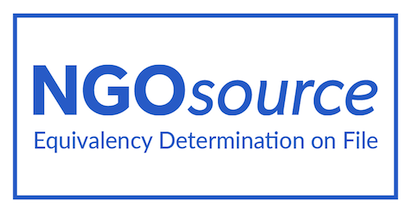My nutrition journey with SNEHA
Sep 10 2025 / Posted in Child nutrition
- By Ujwala Bapat, Program Coordinator, Nurse Aide Programme (SNEHA)
Education is defined in the Oxford Dictionary as a process of teaching, training, and learning, especially in schools, colleges, and universities, to improve knowledge and develop skills. Education has gone beyond my school and college to the experiences and knowledge I have gathered while working with SNEHA.
My journey with nutrition began when I joined SNEHA in 2004. I attended a session on the Benefits of Breastfeeding by Dr Armida Fernandez (Ex-Dean of Sion Hospital and SNEHA’s Founder Trustee), where I learnt that for long-term sustained improved health outcomes, nutrition needs to be prioritised at every stage of your life, more so in the first five years of the human life.
Mother’s milk delivers your first dose of nutrition, so breastfeeding is a crucial process in a child's and mother’s life; it presents in the form of improved bonding.
In 2012, I was involved in a clinical trial in Mumbai’s vulnerable areas of Govandi and Mankhurd, delivering the integrated model of health through the ‘Community Resource Centre (CRC)’. We addressed maternal and newborn health, child health and nutrition, Sexual and Reproductive health, Adolescent health, and violence prevention while focusing on nutrition to reduce malnourishment and working with Low Birth Weight (LBW) babies.
To teach good eating habits and bring about a change in behaviours and attitudes with a focus on health outcomes, we first did a baseline survey to understand existing patterns and design our interventions based on the findings.

We noticed that people were more inclined towards initiatives that could earn them monetary benefits, and health took a backseat. Other factors, such as culture, sanitation, hygiene, cooking practices, eating habits, and seeking behaviour, influenced health-related practices in these communities. Based on this information, we equipped ourselves with knowledge regarding nutrition, food groups, minerals, and vitamins essential in a daily diet. We conducted a demonstration of healthy food recipes with affordable and accessible ingredients. We invited the community members to develop and share recipes that they felt were easy to cook and feed their families.
"My experience with women in the communities is that, if you encourage them, explain the consequences of their positive actions, motivate their involvement and give them sufficient time to assimilate, they are able to see the benefits of the changes you are proposing."
One of our community women from the Mankhurd area got inspired by our recipe demonstrations and came up with her recipe. She took the initiative and demonstrated it to other women. She arranged everything from the stove to all the ingredients of the recipe and cooked with the help of different women at our Community Centre. She used the methods and steps taught in the nutrition sessions, such as washing, cutting, and adequately cooking vegetables. She also explained it to other women, becoming a role model for our initiative.
She later shared that she felt happy and excited that other women listened to her as she spoke; they cooperated, participated, and enjoyed her cooking demonstration. She felt proud that she had done something significant to ensure the health and well-being of her family and the community.
This one event helped us garner the involvement of community members in other activities, too. They formed a mothers’ group for breastfeeding to guide and support the mothers in their Basti. This was the beginning of the shift in behaviours and attitudes of this particular community. The collaboration with Public Health and Nutrition systems like the Integrated Child Development Scheme (ICDS) and the Brihanmumbai Municipal Corporation (BMC) gave impetus to our work. My work with the Community Resource Centre helped me further personally and professionally.
"The more I worked on-ground, I began incorporating my learning in my daily life. I made sure that seasonal foods, different food groups and different cooking patterns were included in my daily meals."
My experience also made me dive deep into the various initiatives and issues that SNEHA works on in the vulnerable informal settlements of Mumbai. Today, I can proudly say that I have worked across almost all SNEHA programmes. For the last 18 years, I have led a team of motivated teachers and doctors, and together, we have trained more than 1300 young women from difficult circumstances and families to become nurse aides. While we had never envisaged a pandemic like COVID-19, the young Nurse-Aides became the ‘helping hand’ of the health system during this challenging time.
As I conclude this blog post, I am immensely grateful for the opportunities and experiences that SNEHA has provided me. The family, the organisation, the people I work with, the women and children we work with, and now the past and present batches of Nurse Aide students have all become an integral part of my life. They say that education can empower people and that the learning process continues throughout their lives. I have lived this, and my journey continues…
Also Read: Global Nutrition Report paints a dismal picture of India
Share:















